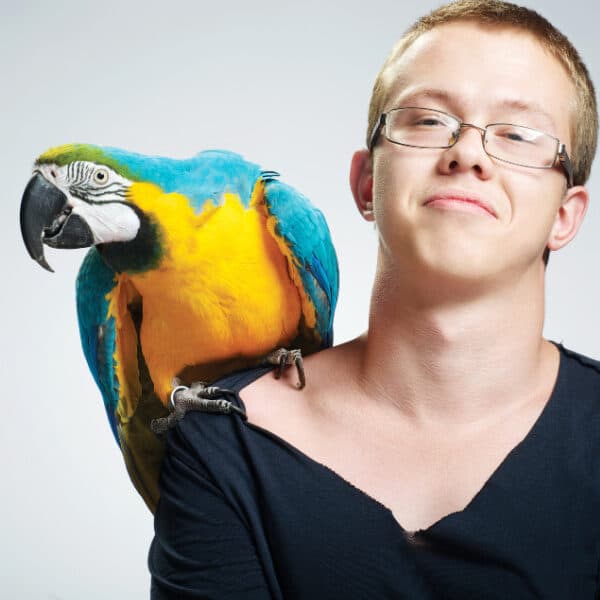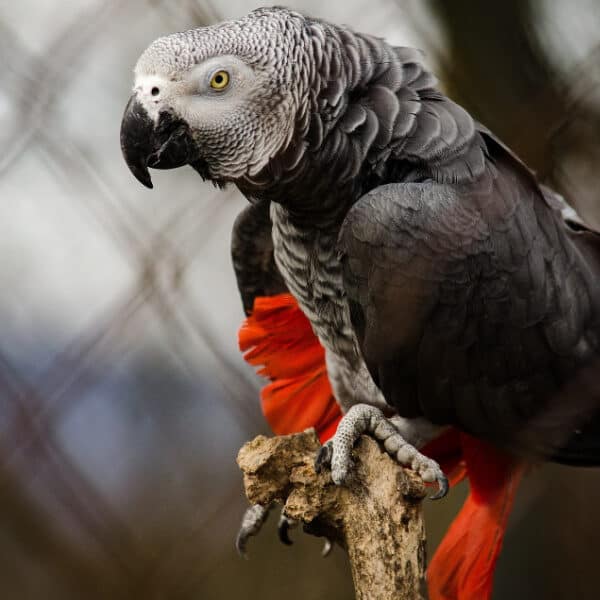Last Updated on by Mitch Rezman
My bird(s) will get proper lighting using a timer to provide an accurate light cycle
I will work with my flighted bird to make him or her a better flyer. If my bird is not flighted I will consider allowing the wings to grow out for a more confident bird that screams less.
A bird is a flock animal I will socialize with my bird. I understand that if my bird appears to be unhappy it is up to me to correct that because getting a second bird for it’s company could change me from a pet companion to a zookeeper.
I will give serious thought to pushing too much human food on my bird knowing that my bird’s metabolism is more efficient when he or she eats bird food designed especially for my parrot.
I will weigh my bird(s) weekly and keep a log. This will help possibly determine illness before it gets un-treatable.
A Better Bird Ep 9 How To Easily Weigh Any Size Bird ~ Video
I will assemble a bird keepers tool kit including things like extra washers and nuts, needle nose pliers, spare toy parts, cable ties, and so forth so I can repair toys before they become dangerous.
I will build a canopy of bird toys on the upper third of my cage ensuring the privacy my bird would receive if he or she lived in the trees in the forest – we call it the birdcage canopy.
I will spend five minutes a day clicker training my bird rather than accepting its negative behavior.
I will have a carrier ready and will practice getting my bird in and out of the carrier at home so an emergency evacuation does not become a catastrophe.
I will stick [perch] train my bird which will allow other family members in the household to move the bird from point A to point B without getting bit.
https://www.youtube.com/watch?v=wOvXt3IFnp8
I will introduce new foods with different textures and flavors to avoid my bird from becoming a finicky eater.
I will rotate my bird’s cage toys at least once a month to help my bird more easily accept change
I will pet only my bird’s head from the neck up so as not to send my bird any sexual signals.
I will not put any sort of tents in my female bird’s cage to reduce the potential for brooding activity.
My bird will see an avian vet at least once a year for a well bird check-up.
I will acknowledge that birds are amoral and if they destroy something within my home it is not the bird being bad but my own negligence at not supervising.
I will not let my bird dictate its nutritional wants.
I will clean my bird’s cage every other day so I don’t have to waste an hour plus on Saturday.
Feathered factoids for new knowledge in the new year:
“A budgerigar, if you keep it in your house at room temperature, wouldn’t need to drink much water if at all, because they’re getting all the water they need from the little bit of water in dry seed,” he said.
“Birds can get away with drinking very little water, but when it gets hot, they have to evaporate water to cool, just like humans do.”
Amazon parrots have no preening glands.
Eclectus parrots have elongated digestive systems making them vulnerable to vitamin toxicity.
Birds’ beaks are not pure keratin but do have nerves (Herbst corpuscles) making them very sensitive and should not be ground downed nor trimmed unless by an avian vet.
Written by Mitch Rezman
Approved by Catherine Tobsing
Your Zygodactyl Foot Note
Author Profile
Latest entries
 Feeding Exotic BirdsDecember 29, 2025How to Switch or Convert Your Bird From Seeds to Pellets: Real-Life Case Studies and Practical Guidance
Feeding Exotic BirdsDecember 29, 2025How to Switch or Convert Your Bird From Seeds to Pellets: Real-Life Case Studies and Practical Guidance Feeding Exotic BirdsDecember 16, 2025A Practical, Budget-Smart Guide to Feeding Birds Well
Feeding Exotic BirdsDecember 16, 2025A Practical, Budget-Smart Guide to Feeding Birds Well Bird EnviornmentsDecember 7, 2025Understanding Budgie Cage Bar Orientation: Myths, Realities & Practical Solutions for Vertical-Bar Bird Cages
Bird EnviornmentsDecember 7, 2025Understanding Budgie Cage Bar Orientation: Myths, Realities & Practical Solutions for Vertical-Bar Bird Cages Feeding Exotic BirdsDecember 5, 2025How Dr. T.J. Lafeber Rewrote the Future of Pet Bird Nutrition
Feeding Exotic BirdsDecember 5, 2025How Dr. T.J. Lafeber Rewrote the Future of Pet Bird Nutrition




Sookiebird
1 Jan 2017All excellent points! Should have a link to this permanently on the site. I wish this info could be handed out to every new (and long-time) bird “owner”!